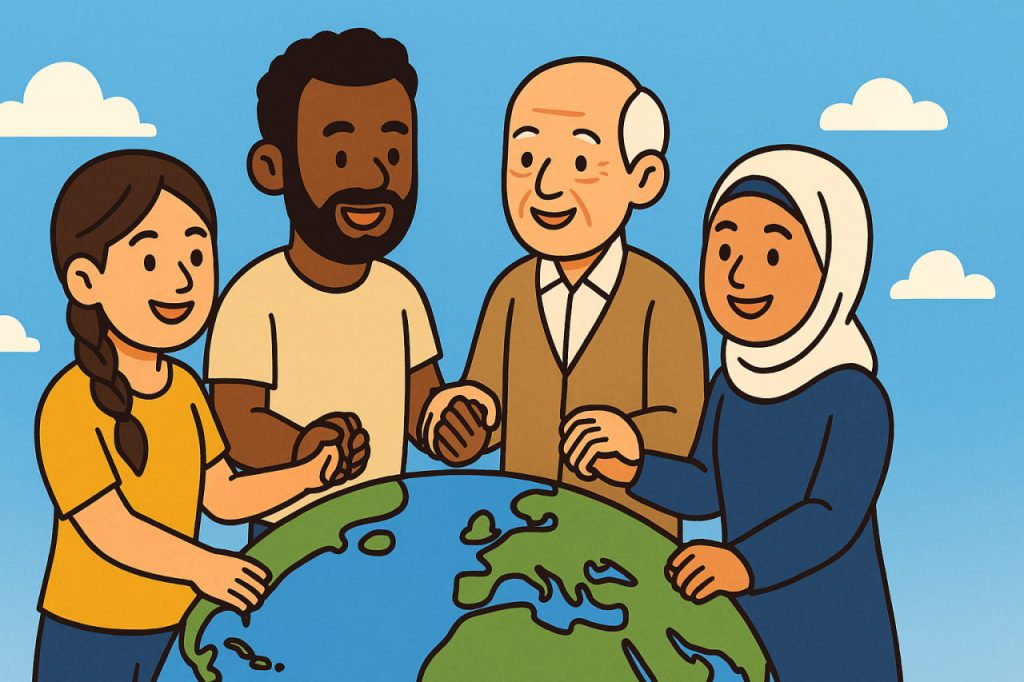World peace may seem like a distant and global goal, but every action by individuals contributes to building a more peaceful society. Even small steps, such as choosing kindness and respect in daily life, are part of the foundation of peace.
Promoting Respect and Dialogue
Conflicts often begin with misunderstanding. By practicing active listening, respect for other opinions, and open dialogue, anyone can reduce hostility in their environment. Peace starts with the ability to resolve disagreements without aggression.
Helping Others in Need
Acts of compassion and solidarity bring people closer together. Volunteering, supporting local charities, or simply helping a neighbor create stronger communities. When societies are built on mutual care, larger-scale peace becomes more possible.
Reducing Hate and Violence Online
In the digital age, words spread quickly. By avoiding hate speech, misinformation, and aggression online, every person helps create a safer and more constructive information space. Promoting positivity in social media is a modern step toward peace.
Learning and Teaching Tolerance
Education plays a central role in peace. Studying different cultures, religions, and histories helps to overcome prejudice. Sharing this knowledge with others builds tolerance and respect.
Supporting Peaceful Initiatives
Supporting organizations and movements that work for peace, disarmament, or climate stability can amplify the impact of individual choices. Even a donation, signature, or participation in events strengthens global peace efforts.
Conclusion
To make peace closer, start with your own actions: respect others, help those in need, spread kindness, and support constructive initiatives. Each person has the power to reduce violence and increase harmony, making the dream of global peace more realistic.
Please don’t be silent. The more people on the planet who raise the issue of unity, ending wars, and overcoming the global crisis, the faster the world will change for the better.
Interesting Facts
Helping peace come closer begins with small, meaningful actions that ripple far beyond the individual. Psychologists and peace researchers emphasize that empathy, communication, and education are powerful drivers of harmony. Listening without judgment, avoiding misinformation, and fostering dialogue — even in small communities — strengthen the social fabric that prevents conflict. Supporting local charities, volunteer groups, or international peace organizations contributes directly to rebuilding trust and cooperation where it’s needed most. Interestingly, neuroscience shows that acts of kindness and altruism activate brain regions linked to happiness, reinforcing positive cycles of behavior in society. Choosing to buy from ethical companies, reducing online hostility, and promoting environmental sustainability also nurture global stability by addressing root causes of inequality and resource stress. Peace isn’t just a political goal — it’s a daily practice that begins within every conversation, every helping hand, and every decision made with awareness and compassion.
Glossary
- Compassion – sympathy and desire to help others.
- Tolerance – respect and acceptance of differences.
- Dialogue – peaceful exchange of ideas to resolve conflict.
- Charity – voluntary help to those in need.
- Peace initiative – organized action to prevent or reduce conflict.
- Solidarity – unity and mutual support in a community.


